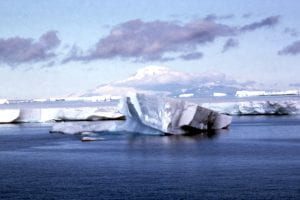Live Science, in a recent article about climate change, claims that according to a report released by the Intergovernmental Panel on Climate Change, there are many significant impacts that have occurred on our precious planet. Marine life overheating as it grasps for oxygen in warming oceans, rising seas swallowing islands and coastal areas, storms growing and causing flooding, coral reefs dying, rare species going extinct, are just some of the events that have occurred due to climate change. These are now used as a wake up call, implying that there’s far worse to come if we do not control human-driven climate disruption.
The Special Report on the Ocean and Cryosphere in a Changing Climate presents its latest evidence that climate change is already underway and we are “on thin ice and running out of time to act,” said Bruce Stein, chief scientist for the National Wildlife Federation (NWF).
One of the main causes of this climate change are fossil fuels. If the use of these fossil fuels isn’t reduced and if global warming continues, it could have a huge negative impact on both wildlife and humans. Researchers recently found more than 200 dead reindeer in Norway; they starved to death due to climate change, which disrupted their access to the plants they eat. After the precipitation froze, creating “tundra ice caps,” a thick layer of ice that prevented the reindeer from reaching vegetation in their usual winter grazing pastures. This forced them to dig pits in shoreline snow to find seaweed and kelp, which are less nutritious than the reindeer’s usual fare.
In addition, there are several other effects that human activity has had on the environment. According to the IPCC report, 50% of the coastal wetlands have been lost over the last 100 years due to the results of human pressures and extreme climate events. They predict that by 2100, seas could rise by more than three feet, which could result in the displacement of millions of people. They also predict that by 2050, marine heat waves will be 50 times more frequent and the uppermost ocean zones could lose more than 3% of their oxygen, eliminating populations of marine animals and harming fisheries. Glaciers could be reduced by as much as 36%, affecting about 4 million people who live in the Arctic and around 670 million people who inhabit mountainous regions. The widespread loss of ice and snow could lead to water shortages, affect food security, and cause intense droughts and wildfires. Evidence has also suggested that warming oceans have caused an increase in tropical hurricanes according to the report.
The Earth’s fate lies in our hands. Debra Roberts, co-chair of the IPCC, says that we can control global warming if we create advances to all aspects of our societies, such as energy, land and ecosystems, urban and infrastructure, and industry. Roberts also suggests we must as early and decisively to avoid permanent changes and risks, all in an effort to improve our lives and achieve sustainability around the world. It will require “unprecedented” political actions to eliminate all the impacts that human-made carbon has created on our oceans. The youth are our strongest supporters to prevent the most severe consequences to our planet.




Leave a Reply